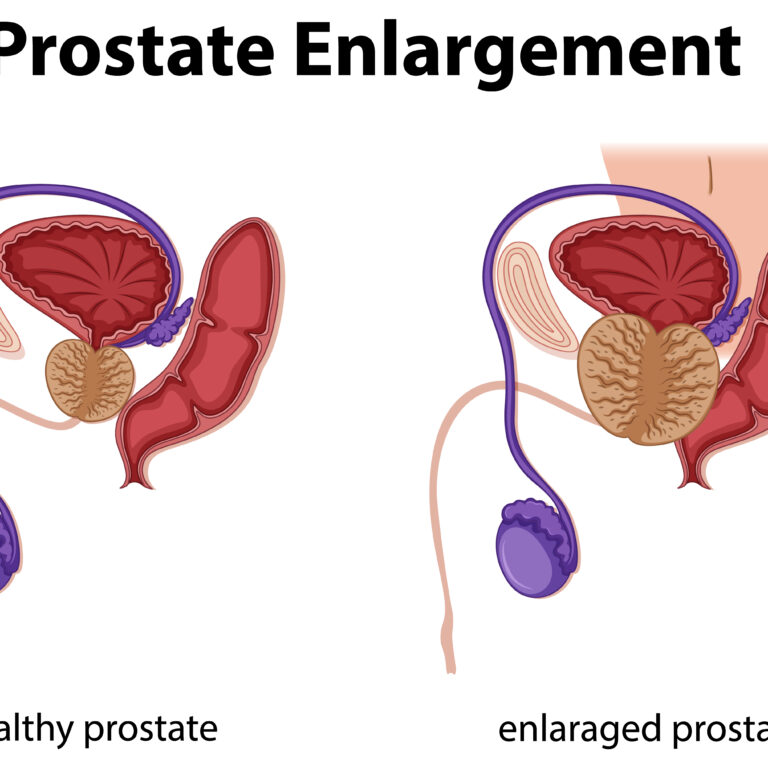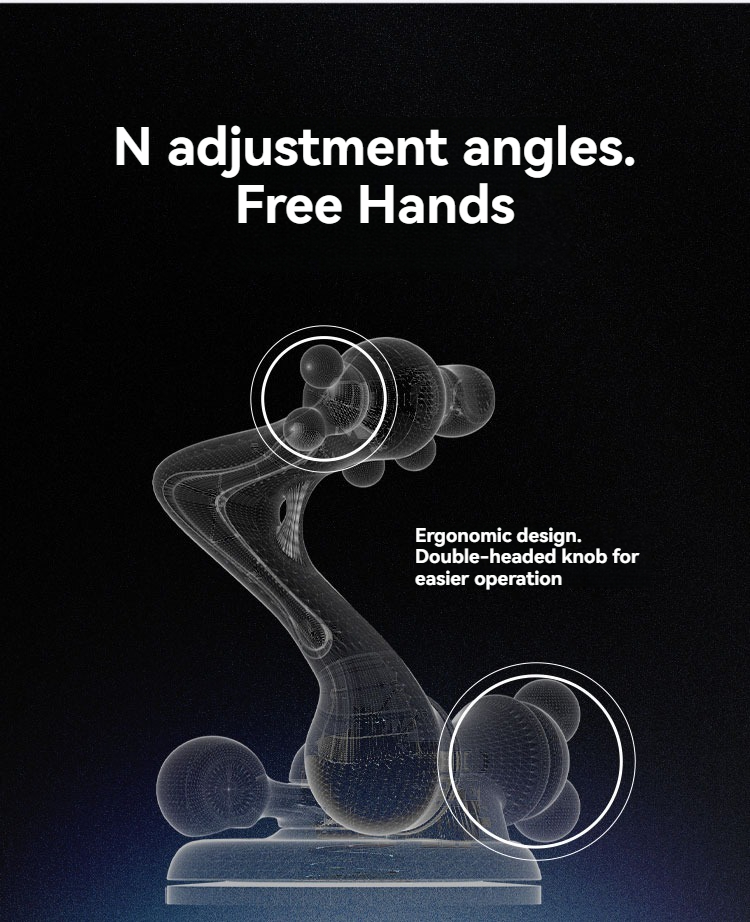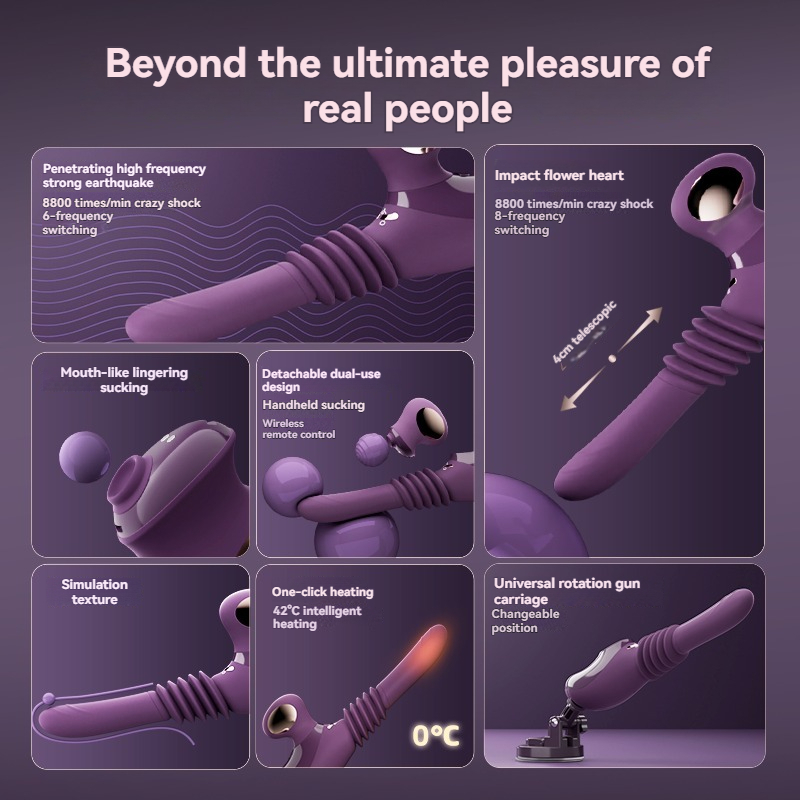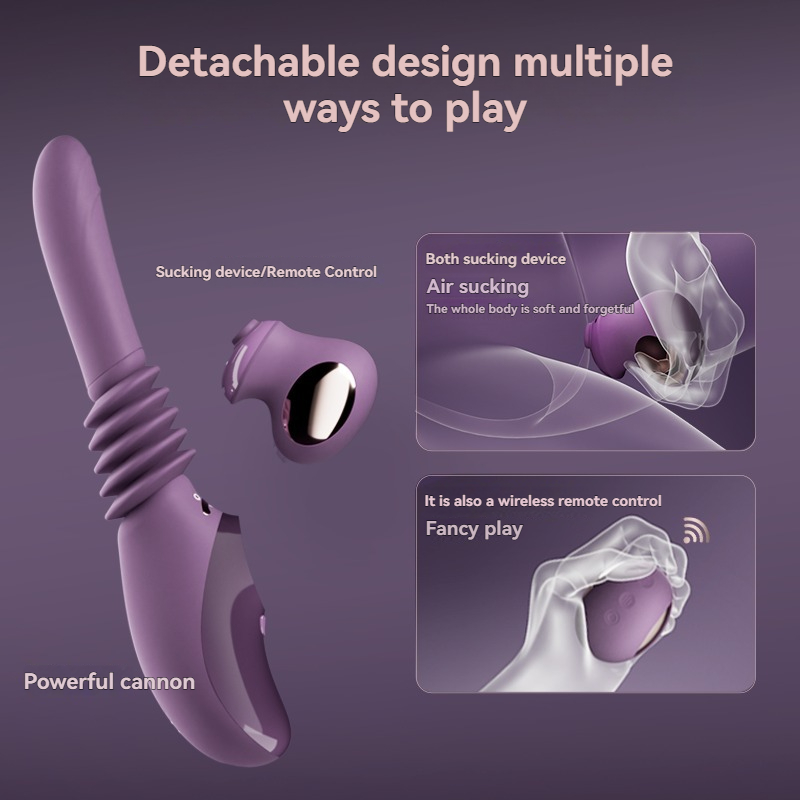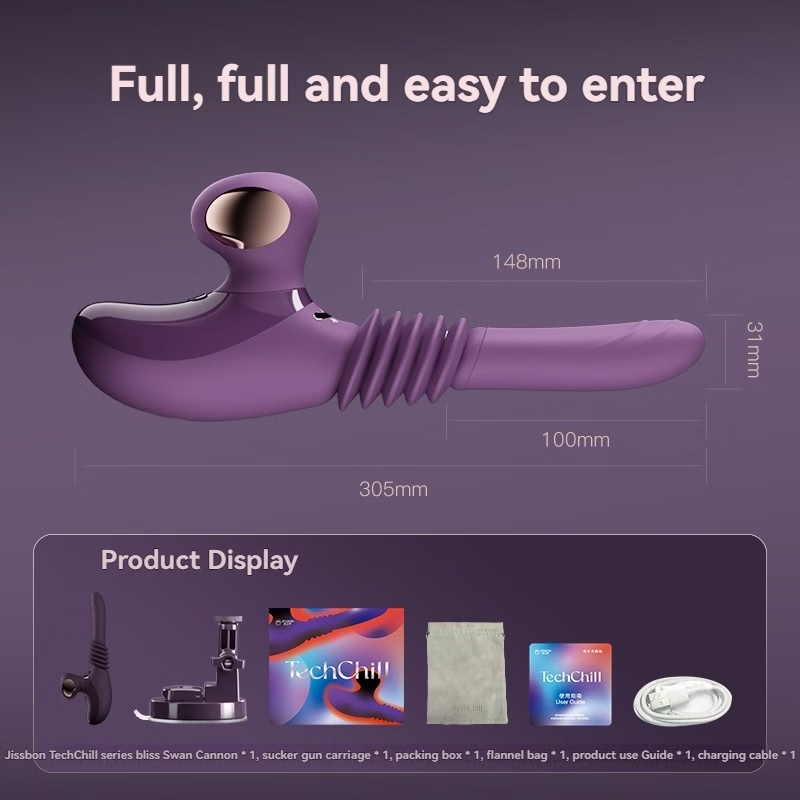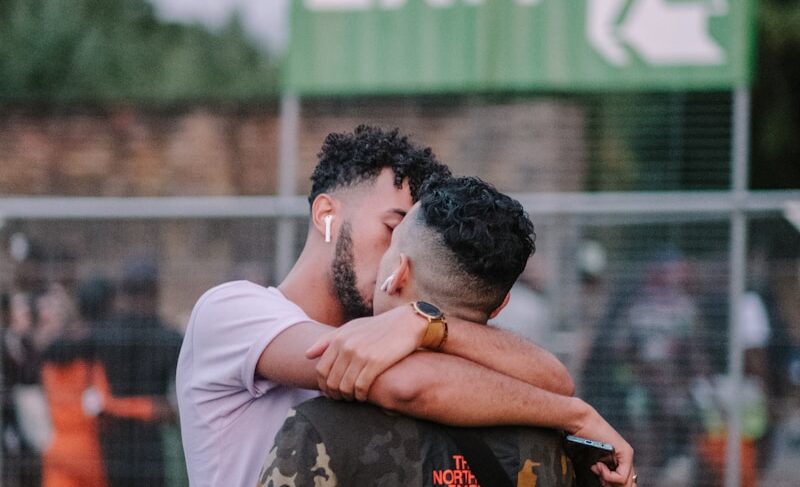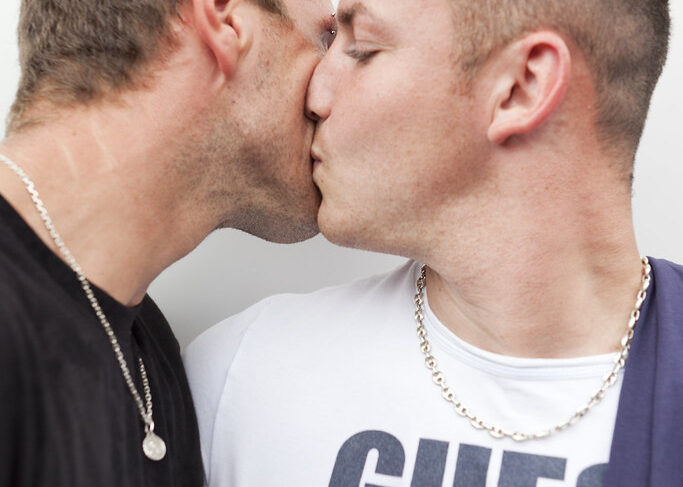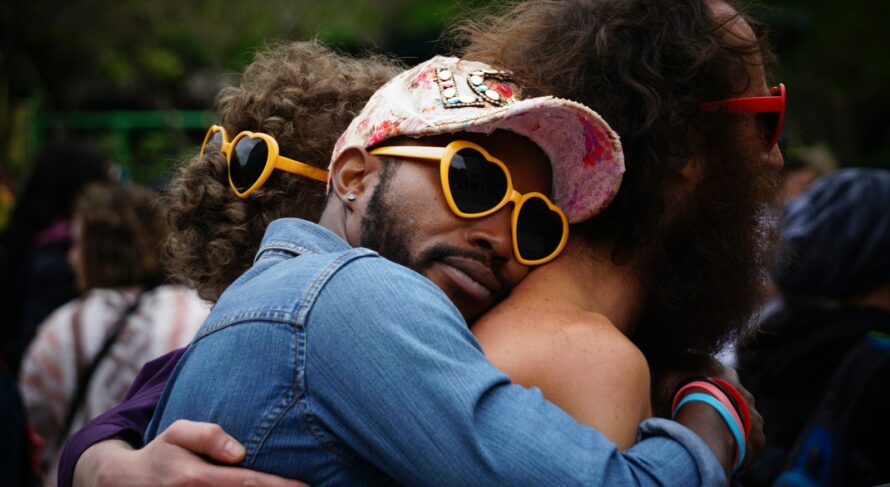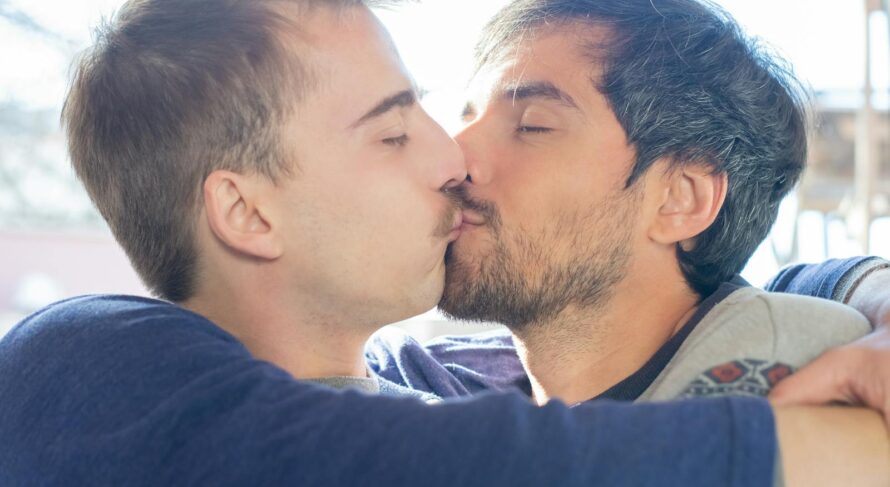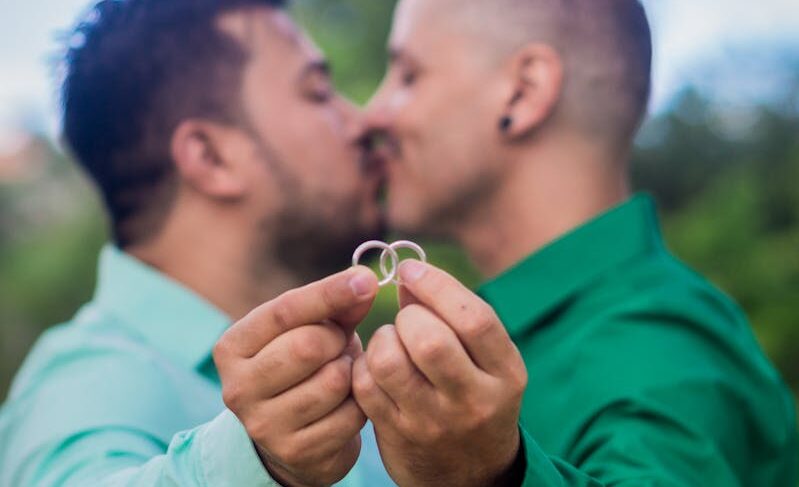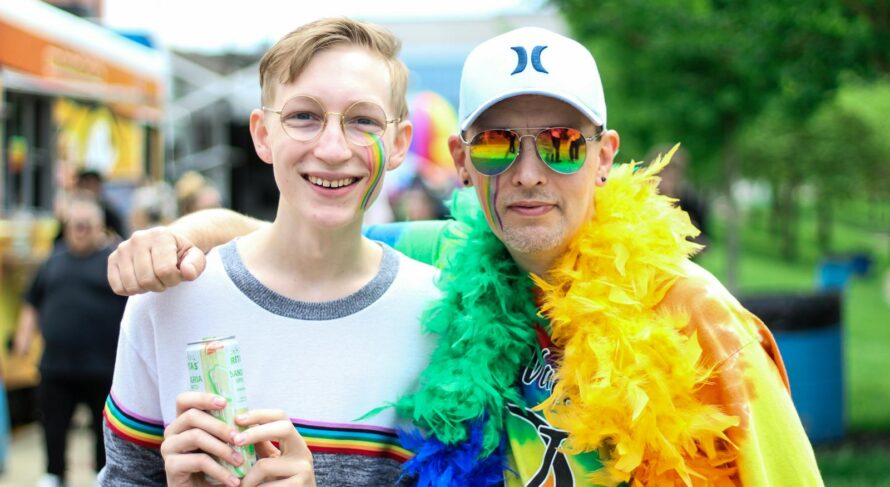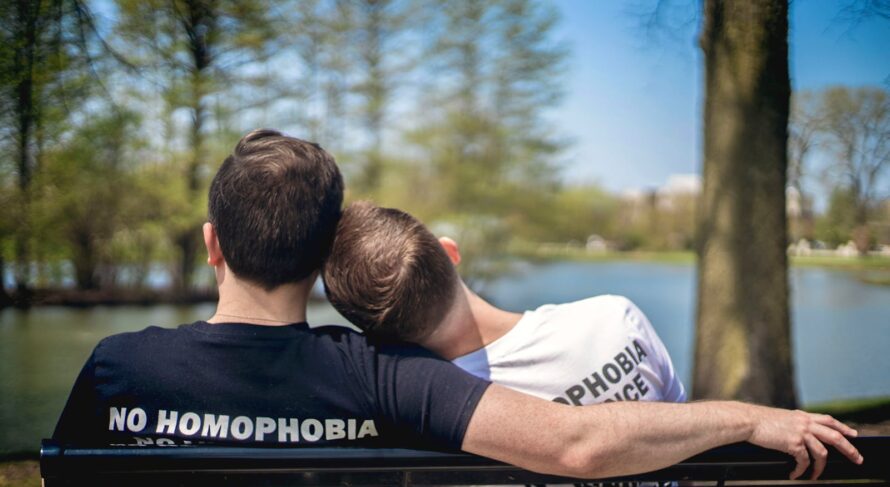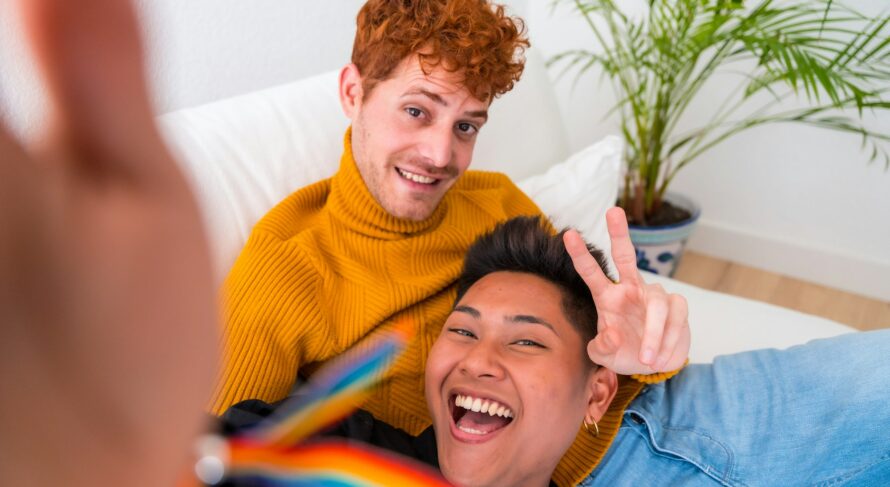Unbreakable Bonds: The Role of Friendship in Strengthening Intimacy Among Gay Men

Key Takeaways-The Role of Friendship in Strengthening Intimacy Among Gay Men
- Friendship plays a pivotal role in enhancing emotional and physical intimacy among gay men.
- Strong friendships provide a foundation of trust, support, and mutual understanding essential for intimate relationships.
- Societal pressures and cultural norms can impact the formation and maintenance of friendships within the gay community.
- Strategies such as open communication, shared activities, and emotional support can strengthen friendships and, by extension, intimate relationships.
- Resources, including those offered by sextoyforyou.store, can support gay men in building and maintaining healthy friendships and intimate connections.
- Continuous personal and relational growth through friendships contributes to the longevity and satisfaction of intimate relationships.
Table of Contents
- Introduction
- Defining Friendship and Intimacy
- The Importance of Friendship in Gay Men’s Relationships
- Friendship Dynamics Among Gay Men
- How Friendship Strengthens Intimacy
- Challenges in Building and Maintaining Friendships
- Strategies to Build and Maintain Friendships
- Case Studies and Examples
- Resources and Tools
- Visual Table: Strong Friendships vs. Weak Friendships in Relationships
- Conclusion
- Frequently Asked Questions
- References
Introduction
Friendship is a fundamental aspect of human relationships, providing a foundation of trust, support, and mutual understanding. Among gay men, friendships play a particularly vital role in shaping intimate relationships, influencing emotional connections, and enhancing relationship satisfaction. This comprehensive guide explores the role of friendship in strengthening intimacy among gay men, offering deep insights, research-backed information, and practical strategies to foster stronger and more fulfilling connections.
Understanding the interplay between friendship and intimacy is essential for gay men seeking to build resilient and satisfying relationships. By examining the definition of friendship and intimacy, the importance of friendships in gay men’s lives, the dynamics that characterize these friendships, and the strategies to strengthen both friendships and intimate bonds, this article aims to provide a holistic view of how friendships contribute to intimate relationship success. Additionally, the guide highlights resources and tools, including those offered by sextoyforyou.store, to support gay men in nurturing their friendships and intimate relationships.
Defining Friendship and Intimacy
To understand the role of friendship in strengthening intimacy, it is essential to define both friendship and intimacy and explore how they interrelate.
Friendship
Friendship is a voluntary, reciprocal relationship characterized by mutual affection, trust, and support. Friends share common interests, values, and experiences, providing companionship and emotional support. According to Cutrona and Russell (1990), friendships offer a unique source of social support that contributes to an individual’s psychological well-being and resilience.
Intimacy
Intimacy in relationships encompasses both emotional and physical closeness. Emotional intimacy involves sharing personal feelings, thoughts, and experiences, fostering a deep emotional bond. Physical intimacy includes sexual activity and other forms of physical closeness that enhance the emotional connection between partners. According to Collins and Feeney (2000), intimacy is a critical component of romantic relationships, contributing to relationship satisfaction and stability.
Friendship and intimacy are interconnected, with strong friendships serving as a foundation for intimate romantic relationships. The trust, communication, and support inherent in friendships enhance the capacity for intimacy, making relationships more resilient and satisfying.

The Importance of Friendship in Gay Men’s Relationships
Friendship plays a pivotal role in gay men’s relationships, influencing various aspects of their emotional and physical connections. The following sections explore why friendships are crucial in the context of gay men’s intimate relationships.
Foundation of Trust and Support
Trust and support are the cornerstones of any intimate relationship. Friendships among gay men often provide a safe space for individuals to express their vulnerabilities, fears, and aspirations without judgment. This environment of trust fosters a deeper emotional connection that translates into more resilient romantic relationships.
According to Baumeister and Leary (1995), the need to belong and the desire for interpersonal attachments are fundamental human motivations. Friendships fulfill these needs, providing emotional security and a sense of belonging that enhances the quality and stability of intimate relationships.
Enhancing Communication Skills
Effective communication is essential for maintaining intimacy. Friendships offer opportunities to develop and refine communication skills, such as active listening, empathy, and conflict resolution. These skills are transferable to romantic relationships, facilitating open and honest dialogue between partners.
Gottman and Silver (1999) emphasize that strong communication skills are critical for resolving conflicts and maintaining emotional bonds in relationships. Friendships serve as a training ground for these skills, enabling individuals to apply them more effectively in their intimate partnerships.
Emotional Regulation and Stress Management
Friendships provide emotional support that helps individuals manage stress and navigate life’s challenges. For gay men, who may face unique stressors such as discrimination, stigma, and internalized prejudices, having a supportive network of friends is crucial for emotional regulation and resilience.
According to Cohen and Wills (1985), social support from friendships buffers the effects of stress, promoting psychological well-being and enhancing the capacity to cope with adversity. This emotional resilience is vital for maintaining intimacy in romantic relationships, as it allows individuals to approach their partners with a balanced and supportive mindset.
Promoting Personal Growth and Self-Discovery
Friendships encourage personal growth and self-discovery by providing diverse perspectives, feedback, and opportunities for learning. Through friendships, gay men can explore their identities, values, and aspirations, contributing to a more authentic and fulfilling intimate relationship.
Research by Heppner and Hodge (2007) highlights that personal growth within friendships fosters greater self-awareness and self-acceptance, which are essential for building healthy and resilient intimate relationships.
Reducing Isolation and Enhancing Social Networks
Friendships reduce feelings of isolation by expanding social networks and providing a sense of community. For gay men, who may sometimes experience social isolation due to societal stigma, having a robust network of friends can enhance overall relationship satisfaction and well-being.
According to the American Psychological Association (2020), strong social networks are linked to higher levels of mental health and relationship satisfaction, underscoring the importance of friendships in fostering intimate connections.

Friendship Dynamics Among Gay Men
Understanding the unique dynamics of friendships among gay men is essential for appreciating how these relationships contribute to intimacy. Several factors influence these dynamics, including societal expectations, cultural norms, and individual experiences.
Shared Experiences and Common Interests
Friendships among gay men are often formed based on shared experiences and common interests, such as participation in LGBTQ+ communities, shared hobbies, or mutual support in navigating societal challenges. These commonalities create a strong foundation for meaningful and lasting friendships.
Research by Frederick and Carne (2013) indicates that shared experiences enhance the quality of friendships, providing a sense of camaraderie and mutual understanding that strengthens the emotional bond between friends.
Mutual Support and Advocacy
Mutual support and advocacy are integral aspects of friendships among gay men. Friends often support each other in personal and professional endeavors, advocate for LGBTQ+ rights, and provide a safe space for discussing sensitive topics related to identity and relationships.
According to Baumeister and Leary (1995), mutual support within friendships fulfills the fundamental need to belong, enhancing emotional security and fostering a positive relational environment that benefits intimate relationships.
Navigating Identity and Authenticity
Friendships play a crucial role in helping gay men navigate their identities and express authenticity. Friends provide a supportive environment where individuals can explore and affirm their identities, fostering self-acceptance and confidence that positively impacts intimate relationships.
Meyer (2003) highlights that supportive friendships contribute to higher levels of self-esteem and lower levels of internalized homophobia, which are essential for maintaining healthy and authentic intimate relationships.
Conflict Resolution and Problem-Solving
Conflicts and disagreements are inevitable in any relationship, including friendships. Effective conflict resolution and problem-solving within friendships set a precedent for handling similar challenges in intimate relationships, promoting healthier and more resilient connections.
According to Salovey and Mayer (1990), Emotional Intelligence, which includes conflict resolution skills, is essential for maintaining strong and resilient friendships, thereby enhancing the quality of intimate relationships.
Boundaries and Respect
Establishing and respecting boundaries is vital for maintaining healthy friendships among gay men. Clear boundaries prevent misunderstandings, reduce the potential for conflicts, and ensure that both parties feel respected and valued within the friendship.
Petronio (2002) emphasizes that effective boundary management is crucial for sustaining long-term friendships, providing a framework for mutual respect and understanding that benefits both friendships and intimate relationships.
By understanding and fostering these unique friendship dynamics, gay men can cultivate strong and supportive friendships that enhance their intimate relationships, providing a foundation of trust, support, and mutual understanding.
How Friendship Strengthens Intimacy
Friendship and intimacy are deeply interconnected, with strong friendships serving as a foundation for resilient and fulfilling intimate relationships. The following sections explore the specific ways in which friendships strengthen intimacy among gay men.
Building Trust and Security
Trust is the cornerstone of both friendships and intimate relationships. Friendships among gay men often involve sharing personal experiences, vulnerabilities, and support, which builds a strong sense of trust and security. This trust carries over into romantic relationships, fostering a secure and stable partnership.
According to Baumeister and Leary (1995), trust developed in friendships enhances the capacity to trust in romantic relationships, leading to deeper emotional connections and greater relationship satisfaction.
Enhancing Communication and Understanding
Effective communication is essential for maintaining intimacy. Friendships provide a safe space for practicing open and honest communication, which enhances the ability to express needs, desires, and concerns in romantic relationships. The skills developed in friendships, such as active listening and empathetic dialogue, directly contribute to better communication with partners.
Gottman and Silver (1999) emphasize that strong communication skills are critical for resolving conflicts and maintaining emotional bonds in relationships. Friendships serve as a training ground for these skills, making individuals better equipped to handle intimate relationship dynamics.
Providing Emotional Support and Validation
Friendships offer emotional support and validation, which are essential for building resilience and fostering intimacy. Friends provide a source of encouragement, comfort, and affirmation, helping individuals navigate emotional challenges and maintain a positive self-concept. This emotional support enhances the ability to offer similar support to romantic partners, strengthening the intimate bond.
Research by Baumeister and Leary (1995) highlights that mutual support within friendships fulfills the fundamental need to belong, enhancing emotional security and fostering a positive relational environment that benefits intimate relationships.
Promoting Shared Activities and Experiences
Engaging in shared activities and experiences strengthens the bond between friends, creating positive memories and fostering a sense of camaraderie. These shared experiences build a foundation of connection that enhances intimacy in romantic relationships, providing common ground and shared interests that deepen the emotional bond.
According to Frederick and Carne (2013), shared activities promote mutual understanding and cooperation, which are essential for maintaining strong and resilient intimate relationships.
Facilitating Personal Growth and Self-Discovery
Friendships encourage personal growth and self-discovery by providing diverse perspectives and feedback. Through supportive friendships, gay men can explore their identities, values, and aspirations, leading to greater self-awareness and self-acceptance. This personal growth enhances the ability to engage authentically and confidently in intimate relationships, fostering deeper emotional connections.
Heppner and Hodge (2007) highlight that personal growth within friendships fosters greater self-awareness and self-acceptance, which are essential for building healthy and resilient intimate relationships.
Building Resilience Through Mutual Support
Resilience is the ability to recover from setbacks and adapt to challenges. Friendships provide a support system that helps individuals build resilience, enabling them to navigate the ups and downs of intimate relationships more effectively. Through mutual support, friends help each other develop coping mechanisms, maintain a positive outlook, and stay connected during difficult times.
According to the American Psychological Association (2020), strong support networks are linked to higher levels of mental health and relationship satisfaction, underscoring the importance of friendships in fostering resilience and intimacy.
By understanding and leveraging the ways in which friendships strengthen intimacy, gay men can cultivate more resilient and fulfilling intimate relationships, grounded in trust, support, and mutual understanding.
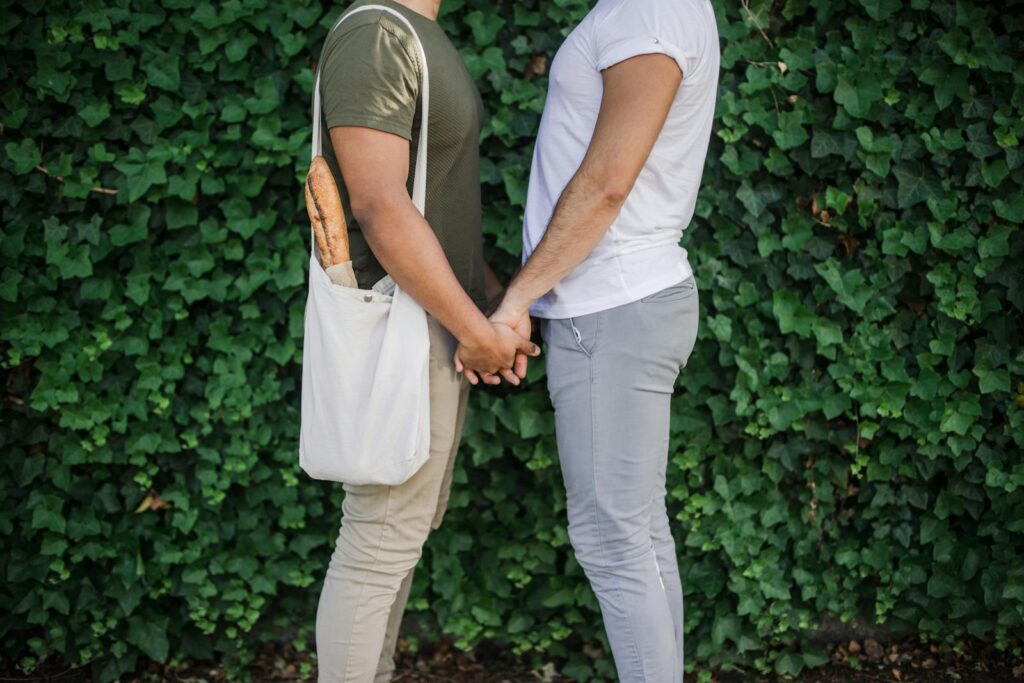
Challenges in Building and Maintaining Friendships
While friendships are essential for strengthening intimacy, gay men may encounter unique challenges in building and maintaining these relationships. Recognizing and addressing these challenges is crucial for fostering strong and supportive friendships that enhance intimate relationships.
Societal Stigma and Discrimination
Societal stigma and discrimination against LGBTQ+ individuals can create barriers to forming and sustaining friendships. Experiences of prejudice, bias, and exclusion can lead to social isolation, making it difficult for gay men to connect with others and build meaningful friendships.
Impact: Societal stigma can lead to increased stress, reduced opportunities for social interaction, and diminished relationship satisfaction, making it more challenging to build resilient friendships.
According to Herek (2009), sexual stigma and prejudice significantly impact the mental health and relationship satisfaction of LGBTQ+ individuals, emphasizing the need for inclusive and supportive environments.
Internalized Homophobia and Self-Stigma
Internalized homophobia, the internalization of societal negative attitudes towards homosexuality, can negatively impact the ability to form and maintain friendships. Individuals struggling with internalized homophobia may experience self-loathing, anxiety, and reduced self-esteem, which hinder the development of trusting and supportive friendships.
Impact: Internalized homophobia can lead to self-isolation, reduced social interactions, and difficulty in forming authentic and supportive friendships.
Research by Meyer (2003) highlights that internalized homophobia is linked to lower self-esteem and increased body image concerns, which can strain friendships and intimate relationships.
Geographical and Social Isolation
Geographic location and social isolation can pose significant challenges to building friendships. In areas with limited LGBTQ+ communities or resources, gay men may find it difficult to connect with like-minded individuals, leading to feelings of isolation and loneliness.
Impact: Geographical isolation can limit access to supportive communities, reducing opportunities for meaningful friendships and increasing the risk of social isolation.
According to the American Psychological Association (2020), social isolation is linked to higher levels of stress, anxiety, and depression, which can negatively impact both friendships and intimate relationships.
Balancing Romantic Relationships and Friendships
Balancing romantic relationships and friendships can be challenging, especially when both require significant emotional and time investments. Couples may sometimes neglect their friendships, leading to reduced social support and increased relationship strain.
Impact: Neglecting friendships can lead to increased dependency on romantic partners, reducing the overall support system and making the relationship more vulnerable to conflicts and stressors.
Research by Gottman and Silver (1999) emphasizes the importance of maintaining a balance between romantic relationships and friendships to ensure a robust support network and resilient intimate connections.
Communication Barriers and Misunderstandings
Communication barriers and misunderstandings can impede the development of strong friendships. Differences in communication styles, lack of open dialogue, and unresolved conflicts can weaken the emotional bond between friends, making it difficult to sustain supportive and trusting relationships.
Impact: Poor communication can lead to misunderstandings, conflicts, and emotional distance, reducing the effectiveness of friendships in supporting intimate relationships.
According to Petronio (2002), effective communication strategies are crucial for addressing misunderstandings and fostering a supportive friendship environment that benefits both friendships and intimate relationships.
Addressing these challenges requires intentional effort, effective communication, and a commitment to building and maintaining strong and supportive friendships. By overcoming these barriers, gay men can cultivate friendships that enhance their intimate relationships, providing a foundation of trust, support, and mutual understanding.
Strategies to Build and Maintain Friendships
Building and maintaining strong friendships is essential for enhancing intimacy among gay men. The following strategies offer practical approaches to fostering meaningful and supportive friendships that contribute to resilient and fulfilling intimate relationships.
Engage in Shared Activities and Interests
Engaging in shared activities and interests provides a common ground for building friendships. Participating in hobbies, sports, cultural events, or community activities fosters connections based on mutual enjoyment and shared experiences.
Strategies for Shared Activities:
- Join Clubs or Groups: Participate in LGBTQ+ clubs, sports teams, or interest-based groups to meet like-minded individuals.
- Attend Social Events: Engage in social gatherings, parties, and community events to expand your social network.
- Volunteer: Volunteer for LGBTQ+ organizations or causes to connect with others who share similar values and interests.
- Explore New Hobbies: Try new activities that interest you, providing opportunities to meet new people and form friendships.
According to Frederick and Carne (2013), shared activities enhance the quality of friendships, providing a sense of camaraderie and mutual understanding that strengthens the emotional bond between friends.
Practice Open and Honest Communication
Open and honest communication is fundamental for building trust and understanding in friendships. Sharing personal experiences, feelings, and thoughts fosters a deeper emotional connection and strengthens the friendship bond.
Strategies for Effective Communication:
- Active Listening: Focus fully on your friend when they are speaking, showing genuine interest and avoiding interruptions.
- Express Empathy: Validate your friend’s feelings and experiences, showing understanding and compassion.
- Share Personal Stories: Open up about your own experiences and challenges to foster mutual trust and vulnerability.
- Address Conflicts Constructively: Approach disagreements with a problem-solving mindset, seeking to understand and resolve issues amicably.
Gottman and Silver (1999) emphasize that effective communication skills are critical for resolving conflicts and maintaining emotional bonds in relationships. Friendships serve as a training ground for these skills, enhancing their applicability in intimate relationships.
Provide Mutual Support and Encouragement
Mutual support and encouragement are essential for building resilient friendships. Offering emotional support, celebrating each other’s successes, and providing encouragement during challenging times strengthens the friendship bond.
Strategies for Mutual Support:
- Be Present: Show up for your friends during important events and when they need support.
- Offer Encouragement: Encourage your friends to pursue their goals and dreams, providing positive reinforcement.
- Provide Emotional Support: Listen attentively to your friends’ concerns and offer comfort and reassurance.
- Celebrate Achievements: Acknowledge and celebrate your friends’ accomplishments and milestones.
According to Baumeister and Leary (1995), mutual support within friendships fulfills the fundamental need to belong, enhancing emotional security and fostering a positive relational environment that benefits intimate relationships.
Foster Trust and Reliability
Trust and reliability are crucial for building strong friendships. Being dependable, keeping promises, and maintaining confidentiality fosters a sense of trust and security within the friendship.
Strategies for Building Trust:
- Be Consistent: Demonstrate reliability by being consistent in your actions and behavior.
- Keep Promises: Follow through on commitments and promises to build trust and credibility.
- Maintain Confidentiality: Respect your friends’ privacy by keeping shared information confidential.
- Show Integrity: Act with honesty and integrity in all interactions, fostering a trustworthy reputation.
Salovey and Mayer (1990) highlight that trust is a fundamental aspect of Emotional Intelligence, enabling individuals to build and maintain strong and resilient friendships.
Establish and Respect Boundaries
Establishing and respecting boundaries is vital for maintaining healthy friendships. Clear boundaries prevent misunderstandings, reduce the potential for conflicts, and ensure that both parties feel respected and valued within the friendship.
Strategies for Boundary Management:
- Communicate Boundaries: Clearly express your personal boundaries and expectations within the friendship.
- Respect Others’ Boundaries: Acknowledge and respect your friends’ boundaries, avoiding overstepping or intruding into their personal space.
- Address Boundary Violations: Address any boundary violations promptly and constructively to maintain mutual respect.
- Adjust Boundaries as Needed: Be flexible and willing to adjust boundaries as the friendship evolves and circumstances change.
Petronio (2002) emphasizes that effective boundary management is crucial for sustaining long-term friendships, providing a framework for mutual respect and understanding that benefits both friendships and intimate relationships.
Engage in Shared Decision-Making
Engaging in shared decision-making fosters collaboration and mutual respect within friendships. Making joint decisions on activities, events, or plans strengthens the bond and ensures that both parties feel valued and involved.
Strategies for Shared Decision-Making:
- Consult Each Other: Involve your friends in decisions that affect both of you, ensuring that their opinions and preferences are considered.
- Negotiate and Compromise: Find mutually acceptable solutions by negotiating and compromising when disagreements arise.
- Value Input: Show appreciation for your friends’ input and acknowledge their contributions to the decision-making process.
- Support Joint Choices: Support and stand by the decisions made together, fostering a sense of teamwork and collaboration.
Gottman and Silver (1999) highlight that collaborative decision-making enhances mutual respect and cooperation, essential for maintaining strong and resilient intimate relationships.
Invest Time and Effort
Investing time and effort in friendships is crucial for building and maintaining strong bonds. Regularly spending time together, engaging in meaningful conversations, and demonstrating commitment to the friendship strengthen the emotional connection and enhance intimacy.
Strategies for Investing Time:
- Schedule Regular Meet-Ups: Plan regular times to meet with friends, whether in person or virtually, to maintain consistent contact.
- Prioritize Quality Time: Focus on spending quality time together, engaging in activities that foster connection and enjoyment.
- Be Present: Be fully present and engaged during interactions, showing genuine interest and attention.
- Balance Time Commitments: Balance your time commitments between friendships and other aspects of your life to prevent neglecting important relationships.
According to Cohen and Wills (1985), investing time in social relationships enhances social support and emotional well-being, which are critical for maintaining strong and resilient intimate relationships.
Encourage and Celebrate Diversity
Embracing and celebrating diversity within friendships fosters a rich and inclusive relational environment. Appreciating each other’s unique backgrounds, perspectives, and experiences enhances mutual respect and understanding, contributing to deeper emotional connections.
Strategies for Celebrating Diversity:
- Appreciate Differences: Recognize and appreciate the unique qualities and experiences that each friend brings to the relationship.
- Learn from Each Other: Engage in conversations that explore each other’s backgrounds and perspectives, promoting mutual learning and understanding.
- Support Inclusivity: Advocate for inclusivity and respect within your social circles, fostering an environment where all friends feel valued and accepted.
- Celebrate Cultural Events: Participate in cultural events and celebrations that honor and recognize the diversity within your friendships.
Research by Meyer (2003) indicates that celebrating diversity within friendships enhances mutual respect and fosters a supportive environment that benefits intimate relationships.
By implementing these strategies, gay men can build and maintain strong and supportive friendships that enhance intimacy, providing a foundation of trust, support, and mutual understanding essential for resilient and fulfilling intimate relationships.

Case Studies and Examples
Real-life examples provide valuable insights into how friendships strengthen intimacy among gay men. The following case studies illustrate the practical application of the strategies discussed and the positive outcomes achieved through intentional effort and mutual support.
Case Study 1: Building Trust Through Shared Experiences
Background: Jason and Kevin have been friends for five years, bonded by their shared interest in fitness and participation in LGBTQ+ community events. Their friendship provided a foundation of trust and mutual support, which later translated into a romantic relationship.
Intervention: When Jason and Kevin decided to transition their friendship into a romantic relationship, they utilized the trust and communication skills developed through their friendship to navigate the new dynamics. They continued to engage in shared activities and maintained open dialogue about their feelings and expectations.
Outcome: The strong foundation of trust and mutual understanding fostered by their friendship enabled Jason and Kevin to build a resilient and fulfilling romantic relationship. Their ability to communicate effectively and support each other through challenges enhanced their emotional and physical intimacy.
Case Study 2: Enhancing Communication Skills Through Friendship
Background: Marcus and Leo have been close friends since college, sharing interests in art and literature. Over time, Marcus developed feelings for Leo, but struggled with expressing his emotions due to fear of damaging the friendship.
Intervention: Marcus and Leo attended a communication workshop together, focusing on active listening and empathetic dialogue. They practiced these skills within their friendship, fostering a more open and honest communication style.
Outcome: The enhanced communication skills allowed Marcus to express his feelings to Leo openly and honestly, leading to a deeper emotional connection. The strong foundation of their friendship enabled them to transition smoothly into a romantic relationship, characterized by effective communication and mutual understanding.
Case Study 3: Overcoming Societal Stigma Through Mutual Support
Background: Daniel and Aaron are friends who faced significant societal stigma and discrimination due to their sexual orientation. These external pressures created stress and strain in their friendship, affecting their ability to support each other effectively.
Intervention: Daniel and Aaron sought the help of a support group for LGBTQ+ individuals to connect with others who shared similar experiences. They engaged in mutual support activities, such as attending community events and participating in advocacy efforts, to build resilience against societal pressures.
Outcome: Through mutual support and community engagement, Daniel and Aaron strengthened their friendship, enhancing their ability to navigate societal stigma together. This strengthened friendship provided a resilient foundation for their intimate relationship, allowing them to support each other through external challenges effectively.
These case studies demonstrate the transformative impact of strong friendships on intimate relationships among gay men. By fostering trust, enhancing communication, and providing mutual support, friendships contribute significantly to the resilience and satisfaction of intimate relationships.
Resources and Tools
Numerous resources and tools are available to support gay men in building and maintaining strong friendships that enhance intimacy. These resources provide valuable information, guidance, and support to foster emotional growth and healthier relationship dynamics.
Educational Websites and Organizations
Reputable organizations offer comprehensive information and resources on building friendships, emotional intelligence, and healthy relationships. Websites like the GLAAD and the American Psychological Association (APA) provide valuable insights and guidelines for fostering strong and supportive friendships.
Books and Literature
Numerous books focus on friendship, emotional intelligence, and relationship building. Titles like Emotional Intelligence by Daniel Goleman, The Friendship Factor by Alan Loy McGinnis, and Nonviolent Communication by Marshall Rosenberg offer practical advice and in-depth discussions on these topics.
Workshops and Seminars
Participating in workshops and seminars on friendship building and emotional intelligence can provide interactive and engaging learning experiences. These sessions often feature experts who offer practical strategies and facilitate meaningful discussions, enhancing the understanding and practice of friendship-enhancing techniques.
Online Courses and Webinars
Online courses and webinars offer flexible and accessible ways to learn about friendship building and relationship dynamics. Platforms like Coursera and Udemy offer courses on these subjects that can be taken at one’s own pace, providing valuable knowledge and skills.
Apps and Digital Tools
Digital tools and apps designed for personal development and relationship enhancement can support the practice of friendship-building strategies. Apps like Headspace for mindfulness meditation and Couples Therapy for guided relationship exercises provide practical tools for enhancing Emotional Intelligence and maintaining healthy friendships and relationships.
Professional Counseling and Therapy
Seeking professional counseling or therapy can provide personalized support and guidance in building and maintaining friendships that enhance intimacy. Certified therapists and counselors can offer tailored strategies to address specific challenges, improve communication, and strengthen relational dynamics.
Community Groups and Support Networks
Engaging with community groups and support networks provides opportunities for sharing experiences, seeking advice, and gaining support from others who are navigating similar challenges. Online platforms like Reddit’s Gaybros community and local LGBTQ+ support groups offer spaces for discussion and mutual support.
Intimacy Products and Tools
Utilizing intimacy products can complement friendship and intimacy enhancement efforts by fostering open communication and mutual satisfaction. Products available at sextoyforyou.store are designed to cater to diverse needs and preferences, ensuring that couples can find tools that enhance their intimate experiences while respecting emotional boundaries and consent.
These resources and tools offer comprehensive support for gay men seeking to build and maintain strong friendships that enhance intimacy, promoting healthier and more fulfilling connections.
Visual Table: Strong Friendships vs. Weak Friendships in Relationships
| Aspect | Strong Friendships | Weak Friendships |
|---|---|---|
| Trust and Reliability | High levels of trust and dependability; friends keep promises and maintain confidentiality. | Lack of trust; inconsistent support and broken promises. |
| Communication | Open, honest, and effective communication; active listening and empathy. | Poor communication; misunderstandings and unspoken frustrations. |
| Emotional Support | Consistent and reliable emotional support; friends provide comfort and encouragement. | Inconsistent or inadequate emotional support; friends are unavailable during tough times. |
| Conflict Resolution | Constructive conflict resolution; ability to resolve disagreements amicably. | Escalated conflicts; unresolved disputes leading to resentment. |
| Mutual Growth | Encouragement of personal growth and self-discovery; friends support each other’s goals. | Lack of support for personal growth; friends do not encourage each other’s aspirations. |
| Shared Activities | Engage in shared activities and interests; create positive memories together. | Rarely engage in shared activities; limited common interests. |
| Overall Relationship Satisfaction | High levels of satisfaction and fulfillment in friendships and intimate relationships. | Low satisfaction; frequent dissatisfaction and emotional strain. |
Conclusion
Friendship plays a crucial role in strengthening intimacy among gay men, serving as a foundation of trust, support, and mutual understanding. Strong friendships enhance emotional and physical connections in intimate relationships, providing a resilient and fulfilling partnership that can navigate challenges effectively. By fostering open communication, mutual support, shared activities, and personal growth within friendships, gay men can cultivate deeper and more satisfying intimate relationships.
Investing in friendships not only enriches personal well-being but also contributes to the overall health and longevity of intimate relationships. Recognizing the importance of friendships and actively working to build and maintain strong, supportive bonds can lead to more resilient and fulfilling partnerships.
At sextoyforyou.store, we are dedicated to supporting gay men in their journey towards building strong, intimate, and healthy relationships. Our curated selection of intimacy products is designed to complement your efforts in enhancing communication, empathy, and mutual satisfaction. Whether you are seeking tools to improve your Emotional Intelligence, foster deeper connections, or explore new dimensions of intimacy, sextoyforyou.store offers the resources and products you need to cultivate a resilient and fulfilling partnership.
Embrace these strategies and resources today to transform your intimate relationships, fostering deeper connections, enhanced communication, and lasting satisfaction. With dedication and the right approaches, you can cultivate a relationship that thrives on both emotional depth and intimate fulfillment, creating a resilient and joyful partnership.
Frequently Asked Questions
1. How does friendship influence intimacy in gay men’s relationships?
Friendship significantly influences intimacy in gay men’s relationships by providing a foundation of trust, support, and mutual understanding. Strong friendships foster effective communication, emotional support, and shared experiences, which enhance both emotional and physical intimacy in romantic relationships. According to Baumeister and Leary (1995), the need to belong and mutual support within friendships fulfill fundamental human motivations, promoting deeper emotional connections and relationship satisfaction.
2. What are some effective strategies to build strong friendships that enhance intimacy?
Effective strategies to build strong friendships that enhance intimacy include:
- Engaging in Shared Activities: Participate in hobbies, sports, or community events to create common interests and positive memories.
- Practicing Open Communication: Foster honest and respectful dialogue, active listening, and empathetic understanding.
- Providing Mutual Support: Offer consistent emotional support, encouragement, and validation to build trust and reliability.
- Establishing Boundaries: Clearly communicate and respect personal boundaries to maintain a healthy and balanced friendship.
- Investing Time and Effort: Regularly spend quality time together and prioritize the friendship to strengthen the emotional bond.
These strategies help cultivate meaningful and supportive friendships that enhance the emotional and physical intimacy of romantic relationships.
3. What resources are available to support gay men in building strong friendships and enhancing intimacy?
Numerous resources are available to support gay men in building strong friendships and enhancing intimacy, including:
- Educational Websites: Websites like GLAAD and the American Psychological Association (APA) offer valuable information and resources.
- Books and Literature: Books such as Emotional Intelligence by Daniel Goleman and The Friendship Factor by Alan Loy McGinnis provide insights and strategies.
- Workshops and Seminars: Attend workshops focused on friendship building, emotional intelligence, and relationship skills.
- Online Courses and Webinars: Platforms like Coursera and Udemy offer courses on emotional intelligence and relationship building.
- Apps and Digital Tools: Apps like Headspace for mindfulness and Couples Therapy for guided relationship exercises support personal growth and relationship enhancement.
- Professional Counseling: Seek help from certified therapists who specialize in friendship and relationship counseling.
- Community Groups: Engage with community groups and support networks, such as Reddit’s Gaybros community, to share experiences and gain support.
- Intimacy Products: Utilize intimacy products from sextoyforyou.store to enhance physical connections and communication.
These resources provide comprehensive support for gay men seeking to build strong friendships that enhance intimacy, promoting healthier and more fulfilling relationships.
References
- Baumeister, R. F., & Leary, M. R. (1995). The need to belong: Desire for interpersonal attachments as a fundamental human motivation. Psychological Bulletin, 117(3), 497-529. https://doi.org/10.1037/0033-2909.117.3.497
- Baumeister, R. F., & Leary, M. R. (1995). The need to belong: Desire for interpersonal attachments as a fundamental human motivation. Psychological Bulletin, 117(3), 497-529. https://doi.org/10.1037/0033-2909.117.3.497
- Collins, N. L., & Feeney, B. C. (2000). A safe haven: An attachment theory perspective on support seeking and caregiving in intimate relationships. Personality and Social Psychology Review, 4(2), 236-258. https://doi.org/10.1207/S15327957PSPR0402_4
- Cohen, S., & Wills, T. A. (1985). Stress, social support, and the buffering hypothesis. Psychological Bulletin, 98(2), 310-357. https://doi.org/10.1037/0033-2909.98.2.310
- Cutrona, C. E., & Russell, D. W. (1990). Type of social support and specific stress: Toward a theory of optimal matching. In S. L. Blascovich, J. W. Carney, & R. F. Donahue (Eds.), Social support: An interactional view (pp. 319-366). Springer.
- Frederick, D. A., & Carne, R. (2013). Do gay men perceive their partners as more attractive? The role of relationship quality. Journal of Homosexuality, 60(8), 1182-1194. https://doi.org/10.1080/00918369.2012.700470
- Gottman, J. M., & Silver, N. (1999). The Seven Principles for Making Marriage Work. Harmony Books.
- Heppner, P. P., & Hodge, D. R. (2007). Resilience and Relational Health in Lesbian, Gay, and Bisexual Couples. American Psychological Association. https://psycnet.apa.org/record/2007-21007-000
- Herek, G. M. (2009). Sexual stigma and sexual prejudice in the United States: A conceptual framework. In D. A. Hope (Ed.), Contemporary Perspectives on Lesbian, Gay, and Bisexual Identities (pp. 65-111). Springer. https://doi.org/10.1007/978-1-4419-9917-6_3
- Meyer, I. H. (2003). Prejudice, social stress, and mental health in lesbian, gay, and bisexual populations: Conceptual issues and research evidence. Psychological Bulletin, 129(5), 674-697. https://doi.org/10.1037/0033-2909.129.5.674
- Petronio, S. (2002). Communication Privacy Management: Theory and Practice. Routledge.
- Salovey, P., & Mayer, J. D. (1990). Emotional intelligence. Imagination, Cognition and Personality, 9(3), 185-211. https://doi.org/10.2190/DUGG-P24E-52WK-6CDG









